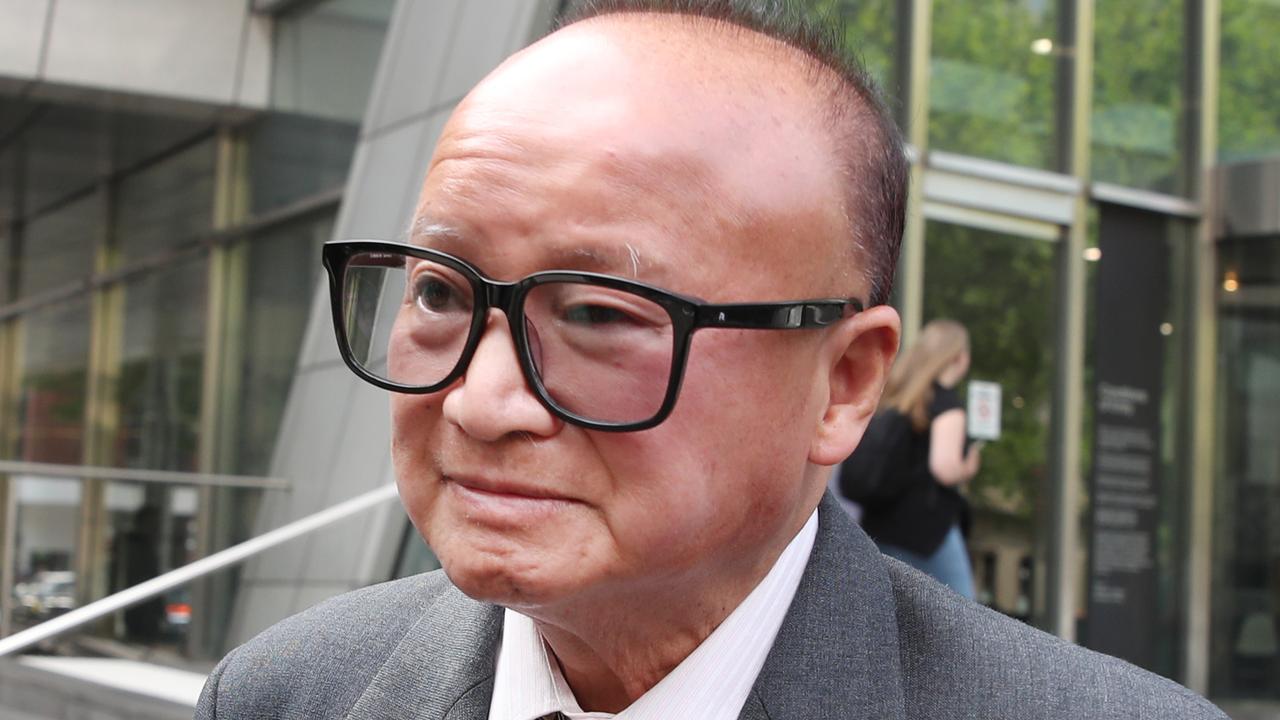A businessman’s public hospital donation sat at the centre of an effort to cultivate a “future prime minister” for the Chinese Communist Party, a jury has found.
Over the past month, Di Sanh Duong, 68, has been facing trial in the Victorian County Court after denying he was planning to commit a foreign interference offence in early 2020.
The court reconvened at 2.30pm on Tuesday following a week of deliberations, after the jury indicated they had reached a unanimous verdict.
He was found guilty.
The case centred around a $37,450 donation made by Duong to the Royal Melbourne Hospital in June 2020 which was attended by then-federal minister Alan Tudge.
The donation, raised from members of Melbourne’s ethnic-Chinese community, was a “laudable” effort to assist healthcare workers and smooth tensions amid the Covid-19 pandemic on its face, the court was told.
But at the core of the effort, the jury found, was an attempt to cultivate a friendly relationship with the minister who Duong had described in tapped phone calls as “formidable” and a “future prime minister”.
Prosecutors, led by Patrick Doyle SC, argued that Duong had undeclared secret links to a Chinese Government agency running a worldwide influence operation – the United Front Work Department.
“The CCP, through the United Front system, runs a global program of influence directed, in large part, at the more than 40 million ethnic Chinese people living overseas,” he said.
“Seeking to persuade them it is in their interest to advance the agenda of the CCP.”
By involving Mr Tudge, Mr Doyle said, he was laying the groundwork for a relationship and possible future approach on behalf of the CCP.
The allegation can be put simple, Mr Duong’s decision to involve Alan Tudge was made with a view to approaching him in the future about matters of interest to the Chinese government,” he said.
“To be clear, there is nothing illegal about being associated with the Chinese Communist Party including the United Front.
“You’re entitled to lobby government but the disclosure that you are acting on someone’s behalf is critical.”
Duong, prosecutors argued, was charming, intelligent and knew “how to tap into people’s sympathies”.
His barrister, Peter Chadwick KC, had argued the donation was a genuine attempt to help frontline workers and his client “denied in the strongest possible terms, working with the United Front.
As a prominent leader in Melbourne’s Chinese community, he said Duong’s donation was raised “as part of his regular charitable work”.
Duong is the first person to be tried under Australia’s foreign interference laws, introduced by the then-Turnbull government in 2018.
The offence carries a maximum penalty of 10 years imprisonment.
He will return to court for a pre-sentence hearing at a later date.
